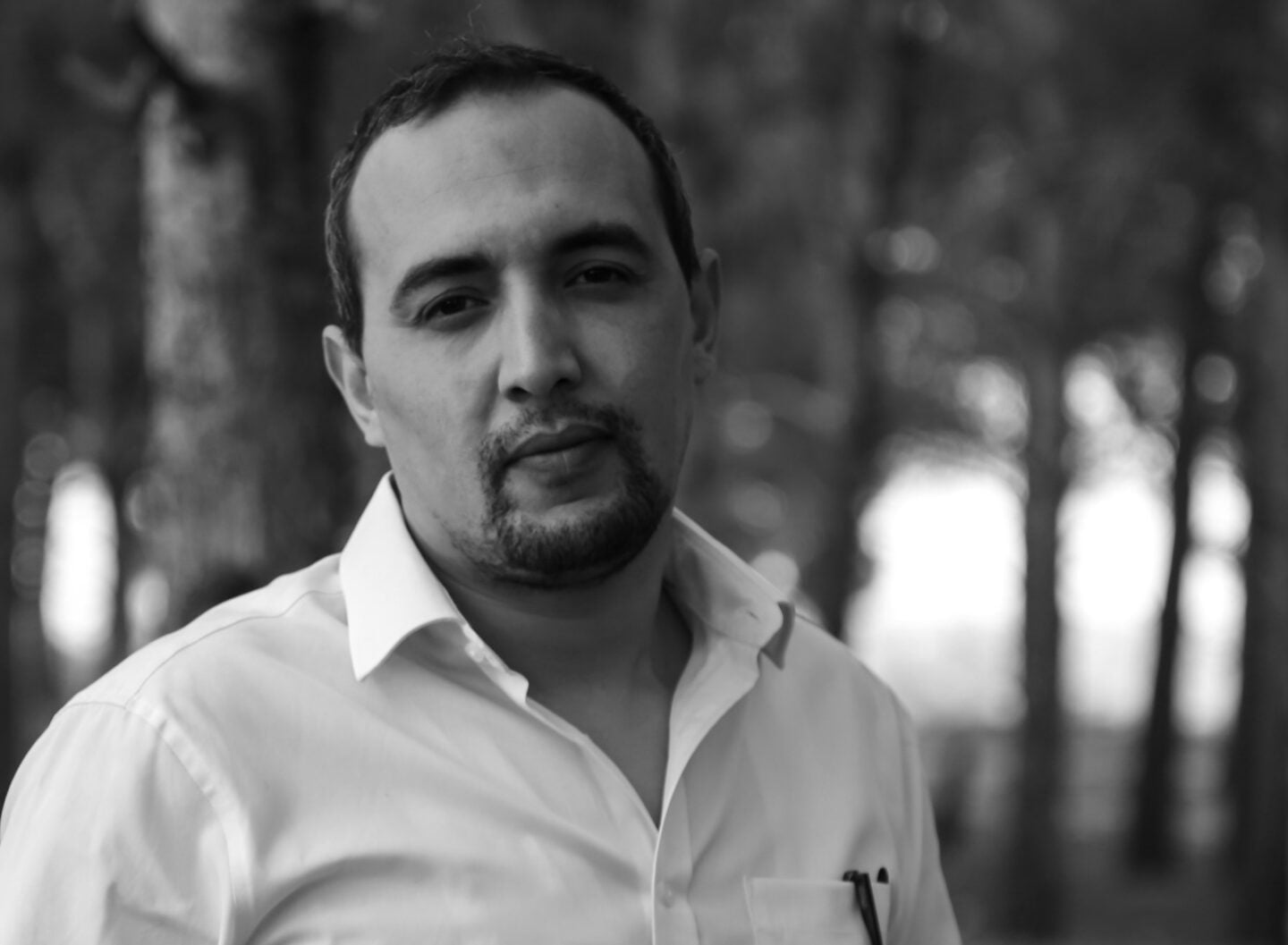
Abdelouahab Aissaoui
- Algerien
- Zu Gast beim ilb: 2021
Abdelouahab Aissaoui wurde 1985 in Djelfa, Algerien, geboren, studierte Elektromechanik an der dortigen Universität und ist als Wartungsingenieur tätig.
2012 legte er mit »Jacob’s Cinema« (Ü: Jacobs Kino) sein Romandebüt vor. Sein zweiter Roman »Mountain of Death« (2015; Ü: Berg des Todes) erzählt die Geschichte von spanischen Kommunisten, die nach dem verlorenen Bürgerkrieg in nordafrikanischen Lagern inhaftiert waren, und wurde mit dem Assia Djebar Prize geehrt, der in Algerien bedeutendsten Auszeichnung für den besten Roman. 2016 nahm er an einer vom IPAF (International Prize for Arabic Fiction) ausgerichteten Schreibwerkstatt für Talente aus dem arabischen Raum teil. Für seinen dritten Roman »Circles and Doors« (2017; Ü: Kreise und Türen) erhielt er den kuwaitischen Suad al-Sabah Novel Prize. 2017 gewann er außerdem für »Testament of the Deeds of the Forgotten Ones« (Ü: Testament der Taten der Vergessenen) den von der katarischen Kulturstiftung Katara vergebenen Literaturpreis in der Kategorie unveröffentlichte Romane. Für »The Spartan Court« (2018; Ü: Der Spartanische Hof) wurde Abdelouahab Aissaoui als erster algerischer Autor 2020 mit dem International Prize for Arabic Fiction ausgezeichnet, der damit außerdem erstmals für einen historischen Roman vergeben wurde. Dieser wichtigste arabische Romanpreis beinhaltet eine Übersetzung des prämierten Werks ins Englische, um ihm auch zu internationaler Bekanntheit zu verhelfen. IPAF-Juryvorsitzender Muhsin al-Musawi hob besonders die »stilistische Brillanz« des Werks hervor. Der Roman spielt in Algerien zu Beginn des 19. Jahrhunderts. Multiperspektivisch angelegt, vermittelt er einen vielschichtigen Einblick in die Zeit der Besatzung. Fünf Figuren werden von 1815 bis 1833 begleitet: Der französische Journalist Dupond berichtet aus Algier. Caviard, ein ehemaliger Soldat der napoleonischen Armee, findet sich als Gefangener in der Stadt wieder. Die algerischen Figuren nehmen den osmanischen und französischen Kolonialmächten gegenüber unterschiedliche Haltungen ein: Ibn Mayyar vertraut auf die Politik als geeignetes Mittel, um Beziehungen zu den Besatzern aufzubauen. Hamma al-Sallaoui hingegen hält die Revolution für den einzigen Weg, um Veränderungen zu erreichen. Die fünfte Figur, Douja, erlebt Algiers Wandel mit wachsender Hilflosigkeit: Entweder man lebt nach den Regeln der Stadt, oder man muss sie verlassen.
Abdelouahab Aissaoui schreibt außerdem Kurzgeschichten. Er lebt in Djelfa, Algerien.
Jacob’s Cinema
Dar Vescera
Algier, 2012
Mountain of Death
Dar el saqi
Libanon, 2015
Circles and Doors
Dar suad al sabah/dar Mim
Kuwait/Algier, 2017
Testament of the Deeds of the Forgotten Ones
Katara
Katar, 2018
The Spartan Court
Dar Mim
Algier, 2018
